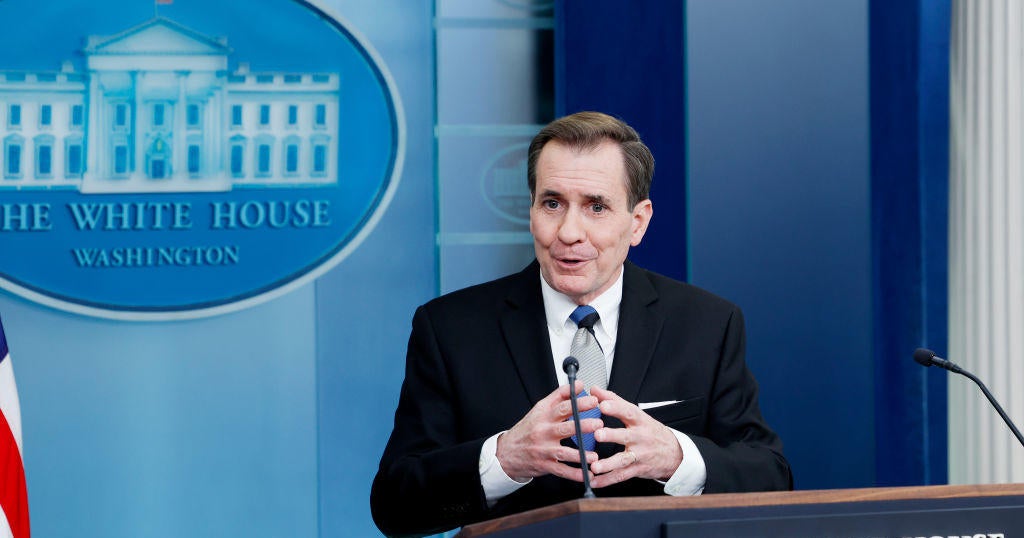
The leaders of the United States, Egypt and Qatar called for Israel and Hamas Ceasefire talks are scheduled to resume next week either in Doha or Cairo.
In a joint statement, President Biden, Egyptian President Abdel Fattah el-Sisi, and Qatari Emir Sheikh Tamim bin Hamad Al Thani urged the parties to “resume urgent discussions” on August 15 “to close all remaining gaps and begin implementing the agreement without further delay.”
“It is time to provide immediate relief to the long-suffering people of Gaza and to the long-suffering hostages and their families,” the statement said, urging Israel and Hamas to refrain from further delay. “It is time to conclude a ceasefire agreement and release the hostages and detainees.”
The United States, Egypt and Qatar have been mediating previous ceasefire discussions. The joint statement issued Thursday came hours after the White House said ceasefire talks between Israel and Hamas were “close” and amid Fears of the war spreading in the Middle East Following the assassinations of prominent Hamas and Hezbollah leaders.
The statement said that the framework agreement on the table is based on the principles set out by President Biden on May 31 and endorsed by UN Security Council Resolution 2735.
Israel fired a missile Rare airstrike On July 30, Israel carried out an attack on the Lebanese capital Beirut, killing Hezbollah commander Fouad Shukr, a close adviser to Hezbollah Secretary-General Hassan Nasrallah. The following day, the long-time head of Hamas’s political bureau was assassinated, Ismail HaniyehKhamenei was assassinated at his guesthouse in Tehran – with Iran accusing Israel of being responsible – hours after he attended the inauguration of Iran’s new president, Masoud Pezeshkian.
If the ceasefire talks proceed according to the proposed timetable, CIA Director William Burns is expected to travel and participate in the talks on behalf of the United States.
Haniyeh was Hamas’s chief negotiator in ceasefire negotiations with Israel, the United States, Qatar and Egypt. His negotiating role appears to have fallen to Yahya Sinwar, now the leader of Hamas’s political wing and alleged mastermind of the October 7 attacks on Israel. Sinwar is believed to be hiding in underground tunnels in Gaza.
In a call with reporters on Thursday, a National Security Council official indicated that if the talks take place on Aug. 15, an agreement is unlikely to be reached immediately.
“The agreement is not expected to be ready for signing on Thursday, there is still a lot of work to be done. But we believe that what is left here can really be closed,” the official said.
“We are very confident, and I base this on our consultations not only with the Israelis, but also with the Egyptians and the Qataris, that there is a way forward here. But more importantly, there needs to be a way forward here,” the official added.
“We are closer than we ever thought,” National Security Council spokesman John Kirby said Referring to the ceasefire talks, Kerry said: “The gaps are narrow enough that they can be closed. What we are talking about here is recognizing the fact that we have come a very long way.”
But former Israeli negotiator Gershon Baskin told CBS News in Jerusalem: “I have no idea where these ideas come from.”
“They seem disconnected from reality but maybe they know something we don’t,” he said.
Asked whether the White House comment might be an attempt to pressure Israeli Prime Minister Benjamin Netanyahu to agree to a deal, Baskin said: “It might be, behind the scenes the Americans are pushing hard,” but added: “I don’t think Netanyahu cares. He’s against Biden.”
Relations between the United States and Israel have been strained this year as Israel’s military campaign in Gaza continues. Nearly 40,000 people have been killed in the territory since October 7, according to the Hamas-run health ministry in Gaza.
Netanyahu spoke again on Tuesday, firmly about military action, during a visit to a military base to recruit soldiers.
“We are moving toward victory, we are prepared to defend and attack, we are striking our enemies, and we are determined to defend ourselves,” he told the recruits.
Days ago, Netanyahu said that Israel was already fighting a “war on multiple fronts.”
“There likely won’t be much progress (on a ceasefire) unless Netanyahu changes course,” Baskin said, “or unless Sinwar is found and killed.”
Sinwar is considered Israel’s No. 1 enemy. He is understood to be in his early 60s and has a long history of fighting Israel. In the late 1980s, he became known as the “Butcher of Khan Younis” after killing dozens of people believed to be collaborating with Israel. He was sentenced to four life sentences and organized prison strikes for better living conditions. In 2011, Netanyahu released him as part of a prisoner swap for a captured Israeli soldier. Sinwar rose through the ranks of Hamas and in 2017 became the group’s head in Gaza.
Now, with Sinwar ascending to the presidency of Hamas’s political wing following Haniyeh’s death, the US Secretary of State has announced Antony Blinken Hamas has put public pressure on Sinwar, saying that he now has the power to conclude a ceasefire agreement in the war between Israel and Hamas.





More Stories
Journalists convicted in Hong Kong sedition case
Stand News: Hong Kong journalists convicted of sedition in case critics say highlights erosion of press freedom
Shark decapitates teen off Jamaica coast